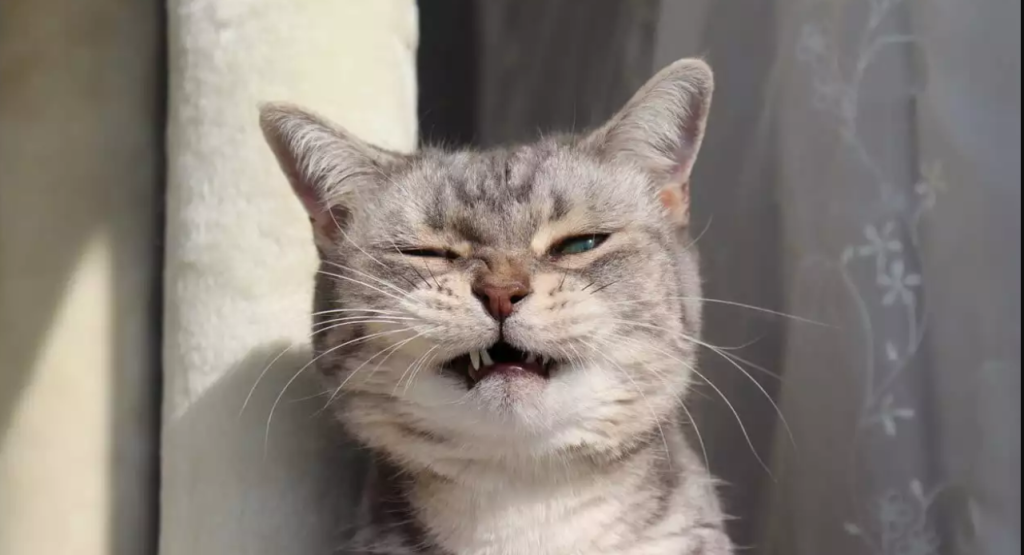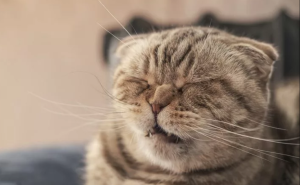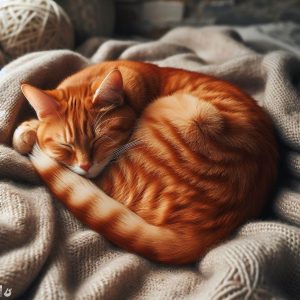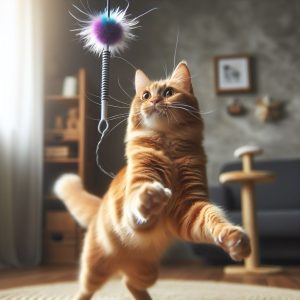It can be concerning when your feline companion starts making odd snorting or snoring sounds. But don’t worry – in most cases, the cat is snorting is completely normal for cats. Understanding the common causes behind kitty snorts can give you peace of mind.
What Does Snorting Sound Like in Cats?
Cat snorting sounds a bit like short, rapid sniffs or snores. It may occur randomly while your cat is awake and relaxed. Or you may notice snorts mainly when your cat is sleeping. Some describe it as a “reverse sneeze” sound. It’s usually nothing to worry about. But pay attention to any changes in the snorting pattern or additional symptoms arising.
Common Causes of Snorting in Cats

There are a few primary reasons why your cat may snort. Here are some of the most common causes:
Nasal Irritation or Congestion
Irritation from allergies, dust, or foreign debris in the nasal cavity can trigger snorting. As your cat tries to forcefully expel the irritation, the noise results. Nasal congestion from a respiratory infection can also cause noisy breathing. Cats may snort repeatedly trying to clear their airways.
Tips:
- Keep your home clean and minimize dust buildup. Vacuum and dust regularly.
- Use an air purifier with a HEPA filter.
- Limit use of sprays, candles, and chemicals that could irritate your cat’s nose.
- See your vet if snorting persists, worsens, or is accompanied by discharge since medication may help.
Brachycephalic Cat Breeds
Certain flat-faced or brachycephalic breeds like Persians and Himalayans can be prone to snorting. Their shortened nasal passages and soft palates make snorts more likely, especially when excited or exercised. But it’s normal for these cats.
Tips:
- Avoid over-exertion and excitement which can worsen snorting in brachycephalic cats.
- Keep your home climate controlled to reduce breathing challenges.
- Ask your vet about airway supportive nutritional supplements.
Sleeping or Relaxed Position
The way cats relax and sleep can also cause snorts. When your cat naps with their head curled into its body, they may snore or snort due to the position constricting air flow. Snorts when relaxed may just be your cat’s normal breathing pattern.
Tips:
- No action needed – just the way your cat relaxes!
- Monitor changes in snorting noises while asleep for any concerning patterns.
Environmental Irritants
Cigarette smoke, candles, harsh chemicals in cleaners or litter, and other environmental irritants may trigger nasal irritation and snorting. Allergies to things like dust mites or pollen can also cause congestion.
Tips:
- Keep your home well ventilated.
- Avoid smoking indoors and minimize irritating sprays.
- Use unscented, dust-free cat litter.
- Consider an air purifier and vacuuming routinely.
- If allergies are suspected, try a hypoallergenic food formula.
Upper Respiratory Infection
Snorting, sneezing, and nasal discharge can indicate an upper respiratory infection (URI) in cats. The most common causes are feline herpesvirus and calicivirus. This contagious viral infection can spread between cats.
Symptoms may include:
- Frequent snorting sounds and nasal congestion
- Sneezing and coughing
- Watery eye discharge
- Red, runny nose and congestion
- Fatigue and reduced appetite
Tips:
- Isolate sick cats and call your vet for an appointment.
- Prescription antivirals and antibiotics may be prescribed for treatment.
- Lysine supplements may also be helpful for herpes-related infections.
- Quarantine new cats and limit exposure to stray cats who could spread illness.
- Thoroughly disinfect cat bowls, toys, and litter boxes to control infection spread.
Dental Issues
Problems affecting your cat’s teeth, gums, or jaw alignment could impact breathing and lead to snorting. Periodontal disease, tooth abscesses, and other oral health issues are relatively common in cats.
Signs of dental problems include:
- Bad breath
- Red, inflamed gums
- Yellow tartar buildup on teeth
- Loose or broken teeth
- Swelling of the face/jaw
- Drooling or difficulty eating
- Snorting or noisy breathing
Tips:
- Schedule regular veterinary dental cleanings to maintain your cat’s oral health.
- Brush your cat’s teeth daily if possible.
- Provide chew toys, dental treats, and dry kibble to help scrape away tartar.
- See the vet promptly for assessment if dental problems are suspected.
Polyps or Tumors
Growths or masses in the nasal cavity, throat, larynx, or related structures could obstruct normal breathing. Snorting or stridor (high-pitched wheezing) could indicate an obstruction requiring veterinary attention.
Additional symptoms may include:
- audible breathing or wheezing
- bloody nasal discharge
- pawing at the nose or face
- difficulty eating
- lethargy or appetite loss
Tips:
- Schedule a vet exam if snorting is accompanied by other worrisome symptoms. Diagnostic imaging can check for obstructions.
- Benign polyps can often be surgically removed to relieve symptoms.
- Treatment options will depend on the tumor type and location. Addressing it promptly optimizes the outcome.
When to See the Vet About Cat Snorting

Occasional snorting is usually normal, especially if it doesn’t impact your cat’s appetite or activity level. But contact your vet promptly if you notice:
- Frequent, forceful snorting or gasping
- Audible wheezing, coughing, or noisy breathing
- Nasal discharge – clear or colored
- Sneezing, watery eyes, lethargy, reduced appetite
- Difficulty breathing through the nose
- Face or nose rubbing, head shaking
- Any snorting accompanied by concerning symptoms
Diagnostic tests like chest X-rays, CT scans, rhinoscopy, or biopsy can determine underlying causes. Treatment varies depending on the condition but may include:
- Antibiotics for bacterial infection
- Antivirals for herpes or calicivirus
- Antihistamines or steroids for allergies
- Removing obstructions or masses
- Tooth extraction for dental abscesses
- Surgery for soft palate issues
With appropriate treatment guided by your vet, snorting noises alone are not dangerous in cats. But it’s always best to investigate any breathing changes to rule out serious illness. Contact your vet promptly about snorting along with any other worrying symptoms. With a timely diagnosis, kitty snorts can often be managed for the long term.
Frequently Asked Questions
Why does my cat make snorting noises while sleeping?
It’s very common for sleeping cats to snore, snort, or make other noises while breathing. The position they curl up in can partially obstruct air flow. Brachycephalic breeds are also prone to noisy breathing while asleep. Usually, it’s no cause for alarm unless symptoms arise while awake.
Is cat snorting dangerous?
On its own, snorting is not dangerous or harmful. Many healthy cats make snorting noises regularly. However, frequent forceful snorting or snorting combined with other symptoms could indicate a medical problem requiring veterinary attention.
How can I stop my cat from snorting?
First, determine the cause. You may not be able to fully stop snorting if it’s normal for your cat breed or sleeping position. But you can minimize snorting from allergies by using air filters, hypoallergenic cat products, and keeping their environment irritant-free. Medication prescribed by your vet can also help reduce nasal inflammation.
Key Takeaways on Cat Snorting Noises
- Snorting is common in healthy cats and generally not dangerous on its own.
- It often results from sleeping position, allergies, irritants, brachycephalic structure, or relaxed breathing.
- Look for signs like discharge, difficulty breathing, or appetite issues that indicate illness.
- See your vet promptly if snorting is frequent, forceful, or accompanied by concerning symptoms.
- With an accurate diagnosis, management options are available to minimize troubling snorting in cats.
- While snorting can be alarming, it’s usually a normal part of life with your feline family member.
Conclusion
It’s natural to worry the first time you hear odd snorting sounds from your furry friend. However, the cat is snorting is quite common and normal in cats. It’s often nothing to be concerned about. Focus on changes in your cat’s baseline breathing patterns or additional symptoms arising.
With a timely veterinary visit for assessment, most underlying causes of excessive snorting can be successfully managed. So take comfort that those funny cat snorts are most likely just an amusing part of living with your kitty!




